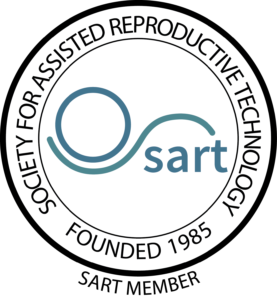When an embryo has chromosomal abnormalities, a healthy pregnancy cannot develop
Our Nashville fertility specialists can help you understand how chromosomal abnormalities impact your chances of having a viable pregnancy. Abnormalities in an embryo is a common cause of miscarriage and IVF failure.
The most common chromosomal abnormality
The most common chromosomal abnormality is aneuploidy, the presence of too many or too few chromosomes in a cell. Aneuploidy can cause early miscarriages and failed IVF cycles due to implantation failure and chromosomal birth defects. These abnormalities can be inherited or “de novo,” meaning they are new to the person.
A typical human cell has 46 chromosomes. When a chromosome is missing, a birth defect such as Turner Syndrome could develop. Down syndrome is a birth defect that occurs from a cell with an extra chromosome 21, also known as trisomy 21.
Causes of chromosomal abnormalities
While chromosomal abnormalities are common, our Nashville fertility specialists have found that certain factors increase the risk of having embryos with abnormalities.
- Advanced maternal age. The quality of a woman’s eggs diminishes over time. When a woman reaches the age of 35 she will have more chromosomally abnormal eggs, which can result in embryos with abnormalities.
- History of failed IVF cycles or miscarriages. Because chromosomally abnormal embryos are the cause of many miscarriages and failed IVF cycles, a patient with this history likely has embryos with abnormalities.
Chromosomally abnormal embryos cannot create a typical pregnancy, but there is a way to detect these embryos before transfer.
Screening for chromosomal abnormalities
For those who have a higher risk of transferring embryos with chromosomal abnormalities, preimplantation genetic screening, or PGS, can be utilized. PGS evaluates embryos for abnormal amounts of chromosomes. PGS does not test for specific diseases or disorders.
Patients with a family history of heritable diseases could benefit from preimplantation genetic diagnosis, or PGD. PGD tests cells from each embryo for genes that are linked to a specific disease.
If you are concerned about chromosomal abnormalities, and want to learn more about increasing your chances of a healthy pregnancy, our Nashville fertility specialists can explain if PGS is right for you.
Contact us for more information.






